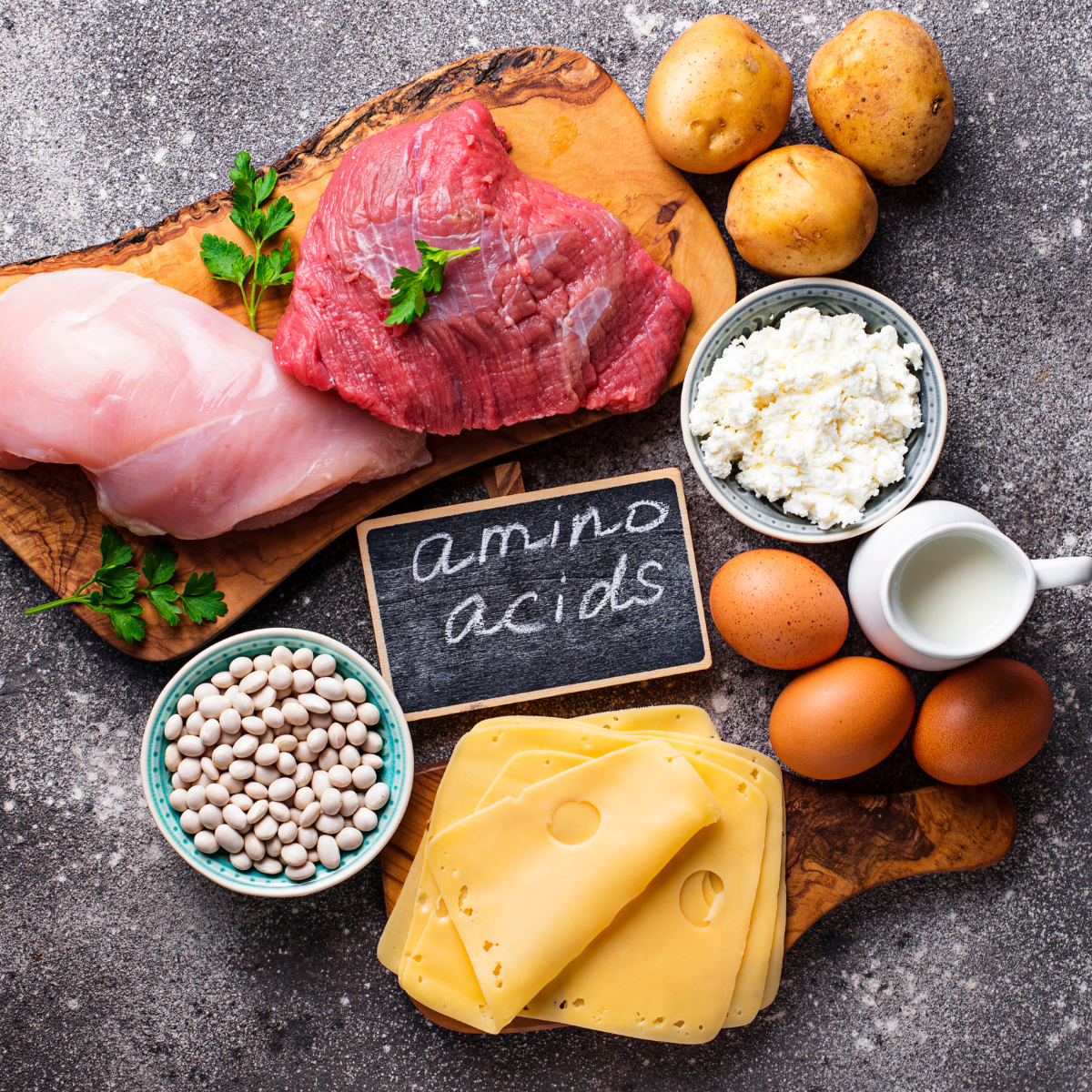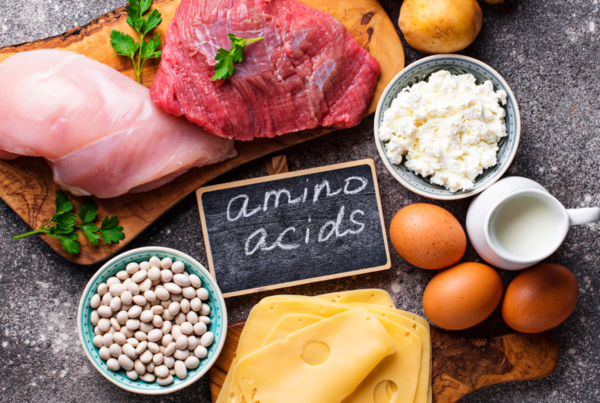When it comes to protein, it’s important to understand that not all protein is the same. Different sources of protein (beef, fish, eggs, plants) have different nutrient profiles. In addition, different sources of protein have different amino acid profiles, some are more complete and optimal than others. Finally, different types of protein have different utilization rates. Utilization rate refers to the percent of the protein that the amino acids that make up the protein can be utilized for the structural and functional needs of the human body.
In addition, gut health significantly impacts your ability to effectively digest and absorb protein. If you have inadequate stomach acid production, you will limit the digestion of the protein and other nutrients. In addition, if you have deficiencies in digestive enzymes, you’ll not be able to break apart the protein into an absorbable form. Finally, if you have gut lining integrity issues, you may have challenges absorbing the amino acids from the protein into your bloodstream. Unfortunately, gut health issues are very common in our time. Making matters worse, you need the amino acids in order to repair the lining of the gut, create stomach acid, and synthesize digestive enzymes. This means that protein deficiency begets protein deficiency.
If you have gut issues, you need to focus on a comprehensive gut healing protocol if you want to optimize your digestive function and your health. I have separate resources available in video and written form that outline protocols for gut healing and the tests available to evaluate the health of the gut.
If gut health is a potential issue for you, you may benefit from adding supplemental digestive enzymes and stomach acid support. In addition, making sure you chew your food thoroughly is very important. I have listed one supplement that provides support for stomach acid production and digestive enzymes on the list below.
Amino acids are divided into two categories, essential and non-essential. Essential means you can only get them from your diet. Non-essential means you can get them from your diet, but your body also has the ability to create them. It’s important to make sure you get all of the amino acids in your diet, but it’s especially important to make sure you get an adequate amount of the essential amino acids. Maintaining adequate levels of amino acids, especially essential amino acids, optimizes protein synthesis, and allows your body to repair itself and maintain function.
In my experience as a physician, the vast majority of my patients benefit from adding supplemental essential amino acids to their diet. The bioavailability of the essential amino acid supplement I recommend is 99% and creates almost zero nitrogen waste product. In addition, the calories associated with the supplement are negligible. It does not create a blood sugar response or insulin response and can be used for many different reasons including maintaining lean body mass while losing weight.
I utilize essential amino acids in both tablet and powder form as part of my daily protocol. I strongly recommend that all of my patients do so as well. In addition, I make sure my wife and children take them on a consistent basis.




